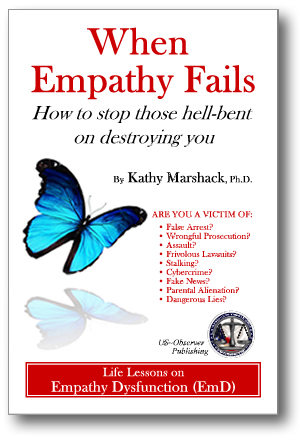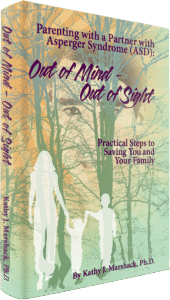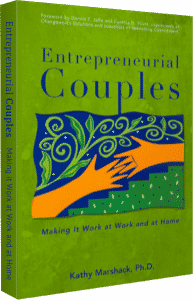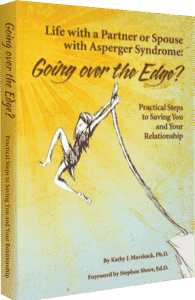
When Empathy Fails:
How to Stop Those Hell-Bent on Destroying You
by Kathy Marshack Ph.D.
Available at Amazon.com:
Kindle $9.99
Paperback $28.95
Have you ever…
- Felt victimized, been swindled or lied to by your best friend;
- Loaned money to loved ones who squandered the gift and never paid you back;
- Had to fight unscrupulous prosecutors for your freedom;
- Been forced to defend yourself from your vengeful ex or your ungrateful children;
- Bumped into a beguiling, but shifty, stranger?
If so, you’ve crossed paths with someone operating with Empathy Dysfunction (EmD). In this book, psychologist, Dr. Kathy Marshack, helps you not only understand why this is happening, but how to protect yourself from those hell-bent on destroying you.
Narcissists, sociopaths, addicts, brain injured, autistics, a vengeful ex, corrupt city officials and greedy neighbors. What do these people have in common?
According to Licensed Psychologist, Dr. Kathy Marshack, they all lack empathy. She ought to know. She endured a 12-year perfect storm of divorce, lawsuits, assaults, cyberstalking, false arrests, predatory prosecution, and the loss of her children to parental alienation. Throughout all these experiences she noticed there was a common theme, namely people with Empathy Dysfunction (EmD).
Dr. Kathy Marshack does more than share her unbelievable true story, she shares:
- Hard-learned lessons on how to stand up for yourself when dealing with people who could literally care less about you.
- A way to identify those with a dysfunctional lack of empathy using the new Empathy Dysfunction Scale (EmD Scale), so you can shield yourself from the destruction they leave in their wake.
- Clues you should never ignore for your own safety – like a rotten neighbor, friends who start believing the nasty gossip spread by your ex-partner, or a nagging feeling you’re being watched. Pay attention, it may be because “they” really are out to get you.
Warrior training to protect yourself from dangerous people. If you’ve been hurt just once, or maybe too many times to count, by a person with EmD, apply the warrior training in this book, increase your own empathy to a higher level, and reclaim the beautiful life you are meant to live.
To receive a complementary copy of a chapter from When Empathy Fails, subscribe to our newsletter below. We’ll give you instructions to get your free download.
“This account of psychologist Marshack’s (Entrepreneurial Couples, 2017, etc.) traumatic trials and tribulations will likely elicit great empathy for the author herself. In a personal narrative that’s troubling but often engaging, she documents the fallout from her divorce, her challenging relationship with her daughters (one is autistic and the other suffers from the effects of a brain injury), and her arduous, toxic legal battle with neighbors over property rights. It’s almost unimaginable what the author goes through, and following her journey from chapter to chapter could leave one emotionally spent. Her negative experiences led her to consider why some people have empathy and others do not; her reflection resulted in the “Empathy Dysfunction Scale (EmD Scale),” which she says can help readers “identify the kind of people you’re dealing with in your life.” Overall, though, the book largely concentrates, almost to a fault, on the injustices that the author says that she suffered during a very ugly dispute with authorities and neighbors over residential land use. Indeed, the extent to which the book describes the case–with accompanying reprinted emails and property drawings–is extraordinary, and its tone sometimes feels almost vindictive. However, the book is engaging when it addresses Marshack’s five levels of “EmDs.” The second chapter does a particularly good job of describing each one of these, ranging from EmD-0 (“having zero degrees of empathy but not intending harm”) to EmD-5 (“epitomizing empathy”). By the end of the author’s sad but engaging tale, the EmD levels do resonate, and the implications of empathy dysfunction become clear.” — Kirkus Reviews
Here’s a review from the US-Observer Magazine:

When Empathy Fails, Empower Yourself!
The US~Observer is proud to announce the release of Dr. Kathy Marshack’s latest book, When Empathy Fails: How to stop those hell-bent on destroying you.
People get along when they empathize with one another. However, there are those in our society who operate without empathy. They are the people who victimize others; who lie, and cheat, and steal. They are the one’s who take without regard, and live as if they are the end all.
Kathy Marshack, Ph.D. knows first-hand the power these types of individuals can have in our lives, and in When Empathy Fails she tells her unbelievable true story. Marshack also shares hard-learned lessons on how you can protect yourself from people who literally care less about you. Furthermore, she introduces the Empathy Dysfunction (EmD) Scale, to help you identify people who have a dysfunctional lack of empathy so you can shield yourself from the destruction they leave in their wake.
It takes more than courage to stop unscrupulous people in their tracks; the ultimate protection is to increase your own empathy. If you’ve been hurt just once, or maybe too many times to count, by a person with EmD, apply the warrior training offered in Marshack’s book and reclaim the beautiful life you are meant to live.








